February 2020 Newsletter
|
Dates to Remember March 2: Deadline for most college financial aid opportunities in California April 15: Tax Day |
As we move into February, most workers should have already received their W-2s and other income tax documents from their employers. That’s particularly important given two key deadlines that are coming up for programs that have benefitted millions of Californians.
Most opportunities for college financial aid in California have a March 2nd deadline. That includes submitting the Free Application for Federal Student Aid form (FAFSA), based on family tax information.
Qualified students can use Cal Grants at any University of California, California State University or California Community College campus and at some independent and technical schools in California as well.
The Middle Class Scholarship provides undergraduate students with family incomes and assets up to $177,000 a scholarship toward the cost of attending the University of California or California State University.
The California Student Aid Commission’s website, www.csac.ca.gov, has everything you need to know about FAFSA, as well as Cal Grants, the Middle Class Scholarship, and other forms and FAQs regarding financial aid.
Most of us have come to recognize April 15th as income tax deadline day. What many people don’t know is that thanks to the California Earned Income Tax Credit (CalEITC), they may be eligible for a tax credit, even if they do not owe taxes.
Creating and expanding the CalEITC, our version of the similar federal tax credit, is one of my proudest accomplishments serving in the legislature. CalEITC4me, the public-private partnership created to make sure eligible Californians know about and file for the EITC, notes that in the program’s first year, the CalEITC boosted the income of about 385,000 people, who received close to $200 million from the credit, and in 2019, more than 2 million people claimed the credit, totaling close to $395 million. In past years, San Diego County has accounted for roughly 7% to 10% of CalEITC filers. We need to increase that. This is money that not only helps the workers who receive it, but also gets recirculated through businesses in our local economies.
Filers eligible for the CalEITC may also be eligible for free assistance to file their return, and can even apply for the credit for previous years. Military families may also be eligible for the federal EITC, and I hope they, too, will look into making sure they receive as much back as they can. There is a lot of good information for filers available at the CalEITC4me website, www.caleitc4me.org.
Another piece of good news for 2020 is that because it’s a leap year, there is an extra day to apply for both financial aid and the CalEITC. If you know someone who may be eligible, be sure to tell them that the earlier they apply for these valuable programs, the better!
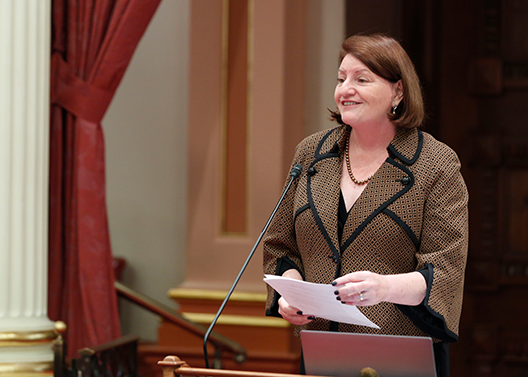 |
The California budget reflects how a strong economy and progressive policies can go hand in hand. It also provides a solid starting point for the Senate as we move forward with our public budget process, which culminates in the Governor signing the budget in June. With record funding for education, solid reserves, relief for small businesses, and innovative ideas on climate change, public safety, health care and many other issues, my colleagues and I appreciate that Governor Gavin Newsom has given us the opportunity to start that process with a budget plan that is already so in sync with California values.
I am especially pleased the Governor is building on the strong collaborative efforts we have been making on wildfires and homelessness, two of the biggest and most immediate challenges we face in California. These issues will continue to be a prime focus for us in 2020 and beyond. In particular, the Governor shares our sense of urgency to invest in climate resilience through a statewide bond initiative. The Senate has proposed a comprehensive approach that includes protecting our vital water resources, reducing risks from flooding and sea level rise, and strengthening our wildfire prevention efforts.
This will be my tenth budget as a member of the Legislature. I am proud that my colleagues and I, along with Governors Newsom and Brown, have moved California’s budget from one mired in quicksand to one built on a firm foundation of fiscal responsibility and visionary policy. Given the proposal before us today, I know we will be able to carry that forward.
This is a strong budget not only for California, but also for San Diego and issues specific to our region. Case in point – the Governor’s budget proposal includes $35 million for the Tijuana River. Pollution in this river directly impacts the health of nearby residents and communities. This proposed fund is a great step toward the long-term fixes we need.
Another issue that is important to me, and many San Diegans, is also being addressed in this year’s budget. The Governor included $50 million in grants for animal shelters for training to help local communities achieve the state’s longstanding goal that no adoptable or treatable dog or cat is euthanized.
I commend Governor Newsom for his forward-thinking budget proposal and look forward to working with his Administration and my Assembly colleagues to craft a good budget for all Californians.
 |
January was National Blood Donor Month so it seemed like an especially fitting time to introduce SB 851, a bill I authored to create more transparency for deferred blood donors.
SB 851 would require all California blood banks and plasma centers to provide information to a deferred blood donor regarding the reason for the deferral. Current California law does not require blood banks and plasma centers to provide sufficient information about the reasons for their deferral.
In recent months, the San Diego Blood Bank has made an urgent plea for blood donations. During periods of critical blood shortages, it is essential that potential donors know if they can give blood.
SB 851 would ensure that deferred donors know why they have been deferred, giving them the opportunity to make informed decisions in the future.
January marked Human Trafficking Awareness Month and I had the opportunity to help bolster awareness of the issue both in San Diego and in the Senate.
On January 25th, I joined hundreds of activists for a rally hosted by the Junior League of San Diego in Balboa Park, where we listened, walked together, and raised awareness about human trafficking in our community.
Last month, the Senate passed a resolution I authored declaring Human Trafficking Awareness Month in California. The Legislature is committed to prioritizing our efforts so that we can provide resources and services to victims and stop more people from having to endure what is, effectively, modern day slavery.
California has one of the highest incidences of human trafficking in the nation due to our proximity to the international border, major harbors, airports and coastline. San Diego is uniquely challenged due to our closeness to the border and ports. But, we can’t ignore that trafficking can affect anyone, particularly vulnerable tweens and teenagers.
We have the strongest sex trafficking laws in the country, but our work is far from done. We will continue to work together to help human trafficking victims, stop predators, and protect our state.
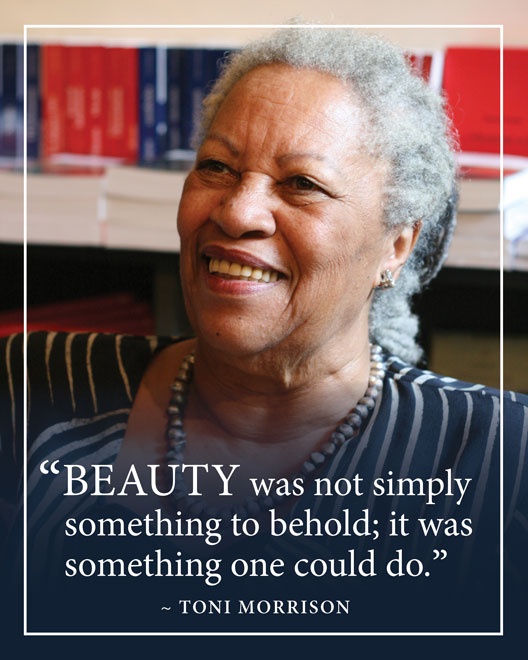 |
This month, in recognition of Black History Month, we commend the incredible achievements and honor the sacrifices African Americans have made in, and for, our country. I’d like to take a moment to remember one of our nation’s most prolific writers, Toni Morrison, who passed away in August 2019. Her prose taught us about the realities of racism, slavery, and the black female experience, and her words were profound and hauntingly beautiful. Her story – and stories – will undoubtedly inspire generations to come.
|
Social Media Corner |
 |
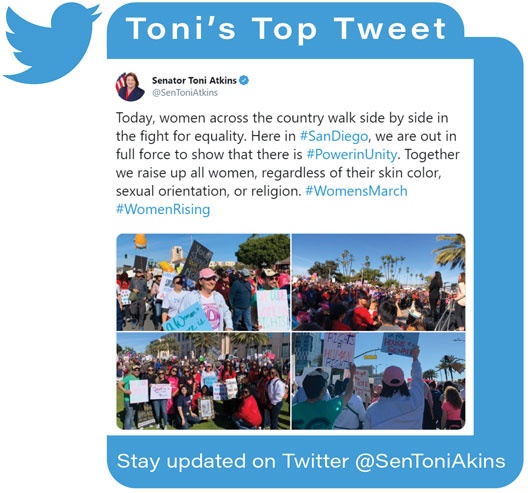 |
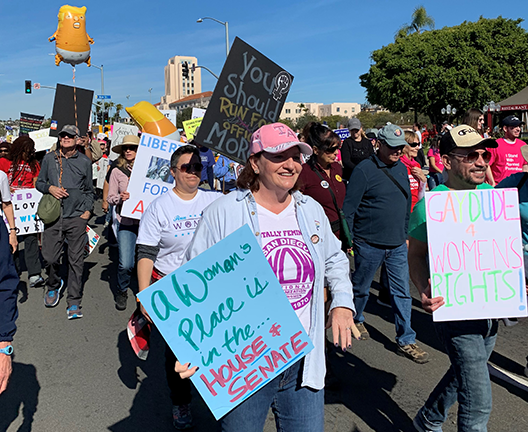 Thousands of people took to the streets on January 18th for the San Diego Women’s March. By marching side by side, raising our voices in unison, we showed that there is power in unity. Together we will raise up all women. |
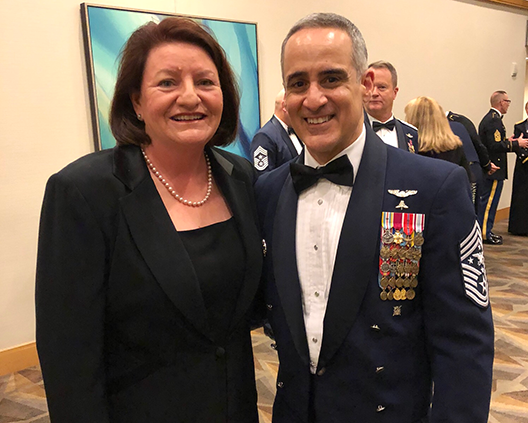 A personal highlight of the California National Guard’s Service Member of the Year Banquet was meeting Ramón Colón-López, the Senior Enlisted Advisor to the Chairman of the Joint Chiefs of Staff. He is the highest ranking service member in the Armed Forces. For someone who grew up in a military family, meeting him is a big deal! |
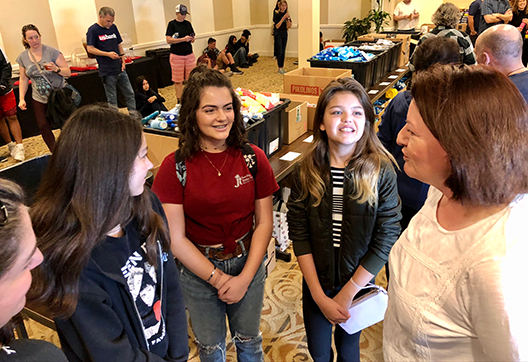 In honor of Martin Luther King Jr. Day of Service, HRC San Diego gathered several local groups to pack hygiene kits for homeless youth. I’m grateful for all of the volunteers who showed up to give back! |
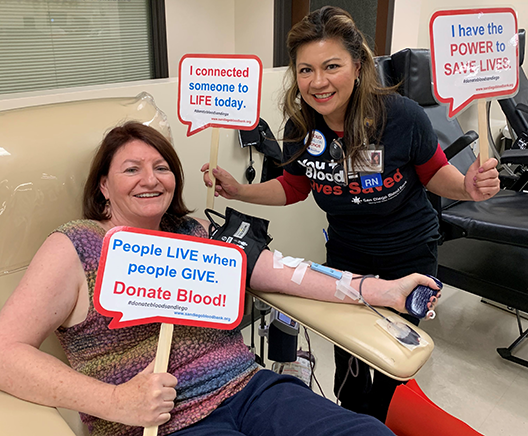 In honor of Blood Donor Month, I stopped by the San Diego Blood Bank to give blood. San Diego County is experiencing a critical shortage in blood supply -- I encourage all who can to donate. |
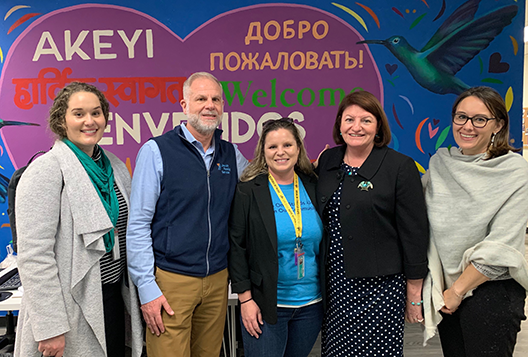 I visited a local migrant shelter to see firsthand the important work Jewish Family Service San Diego and other San Diego Rapid Response Network partners do to aid families who come here in need. |
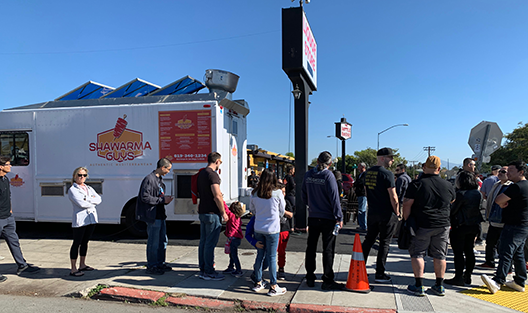 Did you hear that South Park’s own Shawarma Guys nabbed the No. 1 spot on Yelp’s Top 100 Places to Eat in the U.S. in 2020? A personal favorite, I wholeheartedly agree with the ranking. Also on the list is Soichi Sushi in University Heights. One thing’s for sure – San Diegans know how to eat! |
